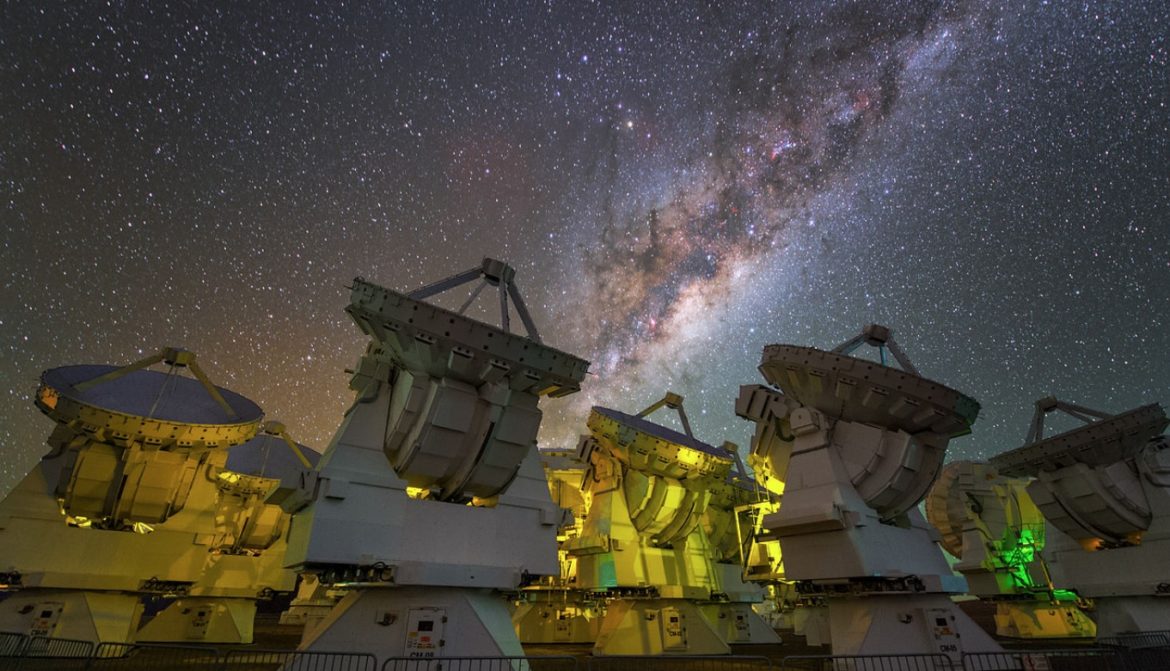For thousands of years, men have looked up at the night sky and, gazing in wonderment at the spangled, starry heavens, heard women say, “Come to bed. We have hunting and gathering to do in the morning.”
Perhaps, reluctant to leave behind the celestial display and the sublime emotions it evoked, the men replied, “Don’t remind me. The only thing I hate more than gathering is hunting.”
“Tough,” they were surely told. “I’m not doing it all myself.”
And yet, even as these men grudgingly obeyed, as they always did, and shuffled back to the cave, they wondered: “What are those tiny pinpricks of light? Where do they go during the day? What mighty power placed them there? And what is this Earth, upon which I, and other men, and the women who always tell us what to do, find ourselves?”
But man’s curiosity in the face of Nature did not stop with asking questions. Over the centuries, we have set about the task of answering those questions. This process began with the speculation, reasoning, and writings of “natural philosophers.” These men (they were always men, probably) were amateurs; the job of professional philosopher or scientist did not exist before modern times and is, when you think about it, really a very recent invention. And so we find ourselves wondering: When mankind’s earliest thinkers pondered the heavens and Earth’s place in the universe, did their wives or girlfriends bid them stop, and demand that they come help with whatever mundane chore required attention right that second?
We are entitled to think not. We are entitled to think that some women, even in the Bronze Age and times like that, had the good sense or common courtesy to allow men to think, to theorize, and, yes, to daydream, about matters of universal and lasting significance. And if they didn’t—if they got all bossy and bitchy about it—nevertheless, the men persisted in their inquiries.
We know this, because over the centuries our understanding of this planet’s place in the cosmos — of man’s very place in the universe — has changed.
Once we thought that Earth sat, immobile, in the center of all creation; that the starry dome wheeled around us in concentric shells of increasing perfection; that above it all hovered God Almighty, the Eternal Father and Creator.
We thought, that is, that we human beings were the apex, the summit, the crowning glory of all creation. Perhaps that is what the ancient Greek philosopher, Pythagoras, meant when he said, “Man is the measure of all things.” Sadly, no one knew what he was talking about. And now we never shall, because he is, of course, dead. Presumably, while he lived, people asked him what he was getting at. But surely, when summoned to clarify his meaning, this seminal thinker begged off with the pitiful excuse that he “had no time” to explain, because Mrs. Pythagoras “needed” him “to help clean up around the house,” or whatever the ancient Greeks lived in.
In any case, and in spite of the objections and distractions provided by women, man made progress. We developed the scientific method. Over centuries, men dared to ask, and to experiment, and to challenge, and to invent. We created the lens, the telescope, the rocket, the satellite. And if, over that span of inquiry, men’s girlfriends dumped them, or demanded that they “get a real job” instead of “sitting around all day ‘thinking’ and taking stupid ‘notes,’” nonetheless, they persevered.
“Leave me alone,” they said. “I’m a natural philosopher, in the traditional manner.”
“No you’re not,” they were told. “You’re just jerking off and wasting time.”
What courage and dedication they displayed! And yet, the victory that they—that we—achieved was, and remains, a pyrrhic one.
Through dogged investigation, meticulous mathematical calculation, and the acquisition of an ever-increasing trove of data, we have learned that our earliest assumptions about Earth, and its situation in the universe, were entirely wrong. The truth, however, far from inspiring us with its verifiability, is, in fact, crushing.
Earth does not exist in a privileged place, in the universe or anywhere else. We occupy a tiny wet rock, orbiting a perfectly average star, in an utterly unremarkable sector of a very common galaxy. The galactic cluster of which our Milky Way is but one of 54 galaxies, the so-called Local Group, is no big deal either. Moreover, the entity of which it is a part, the Virgo Supercluster, is just some typical, supremely ordinary supercluster of galaxies.
In other words, everything about our cosmic identity is mediocre crap. We’re nothing. We’re dirt. We’re not the center of squat or the apex of anything. We live in a shitty neighborhood in the middle of Bumfuck, Cosmos, and the only reason we think it’s so great is, we’ve never lived on any other planet.
What can that mean? That our girlfriends were right to dump us? Worse, that all our time striving and dreaming and avoiding the laundry would have been better spent doing the laundry? Or even loading the dishwasher? That God (if there even is a God) is a female? It is an intriguing concept and, arguably, preferable to the conclusion that mankind itself is a bunch of losers. It requires further thought.
